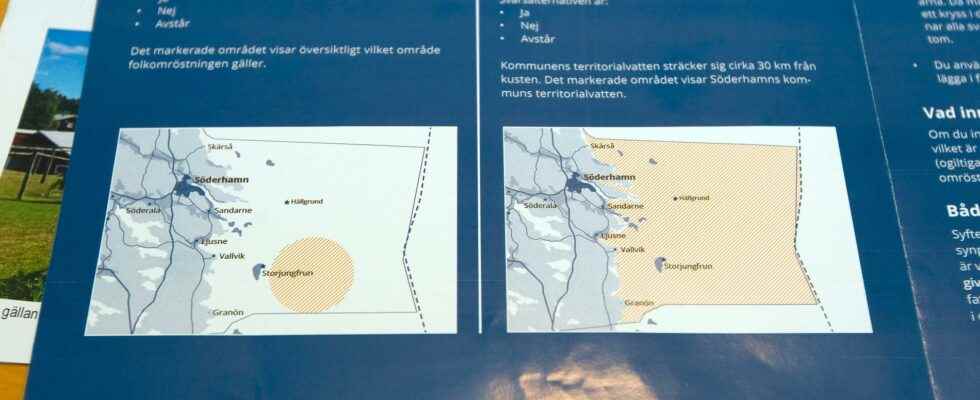Published: Just now
Söderhamn, Trelleborg and Halmstad are organizing referendums in connection with the general election this year, all following people’s initiatives.
The initiators have a great chance of winning but less chance of bringing about a change, says a professor.
1. Should the municipality of Söderhamn allow the establishment of wind power on Storgrundet? 2. Should the municipality allow the establishment of wind power in the municipality’s territorial waters?
These are the questions the people of Söderhamn are voting on on September 11. But regardless of the result, wind power will still be built in the municipality, because there is already an irreversible condition.
– In almost all cases, people’s initiatives are a protest against a decision that has been made or is about to be made. It is a resistance group that is sometimes allied with the political opposition, says David Karlsson, professor at the School of Management at the University of Gothenburg.
This is also how it looks in Söderhamn. The first initiative was taken by municipal politician Daniel Persson (SD), who was later followed by another of the citizens.
Almost always wins
In practice, there are thus two types of municipal referendums: those that the council orders and those that are basically forced by a people’s initiative in protest against the political majority in the council, according to Karlsson.
In order for a referendum to take place, ten percent of the residents entitled to vote must sign the initiative. Referendums are advisory only.
– It is very unusual for those who push through a referendum to lose. They almost always win, he says and continues:
– But it is also common that the decision is not carried out in accordance with the referendum.
Unsolicited advice
According to Karlsson, referendums can function as an important supplement to the election. They can provide information that facilitates the work of elected officials. But when the vote is forced through popular initiative, the political leadership receives advice it has not asked for.
Karlsson describes it as a clash of democratic models. Electoral democracy versus direct democracy.
– Formally, electoral democracy is at the top. But from the eyes of the voters, it is problematic, because they think that they should be listened to if they participate in a referendum.
He still believes that few political leaders go against a majority with a light heart.
– It is a tricky situation that risks reducing trust in local democracy.
Easier to say no
According to Karlsson, a good referendum is when the people elected are actually interested in the result or when the dividing lines on the issue run counter to the usual party politics. The question must not be too complex either, he emphasizes.
He believes that it should be easier for the council to say no to referendums.
– In many cases, referenda are carried out that we know in advance will not be followed. If the majority can say no after the fact, they should be able to say no before – to preserve respect for representative democracy.
